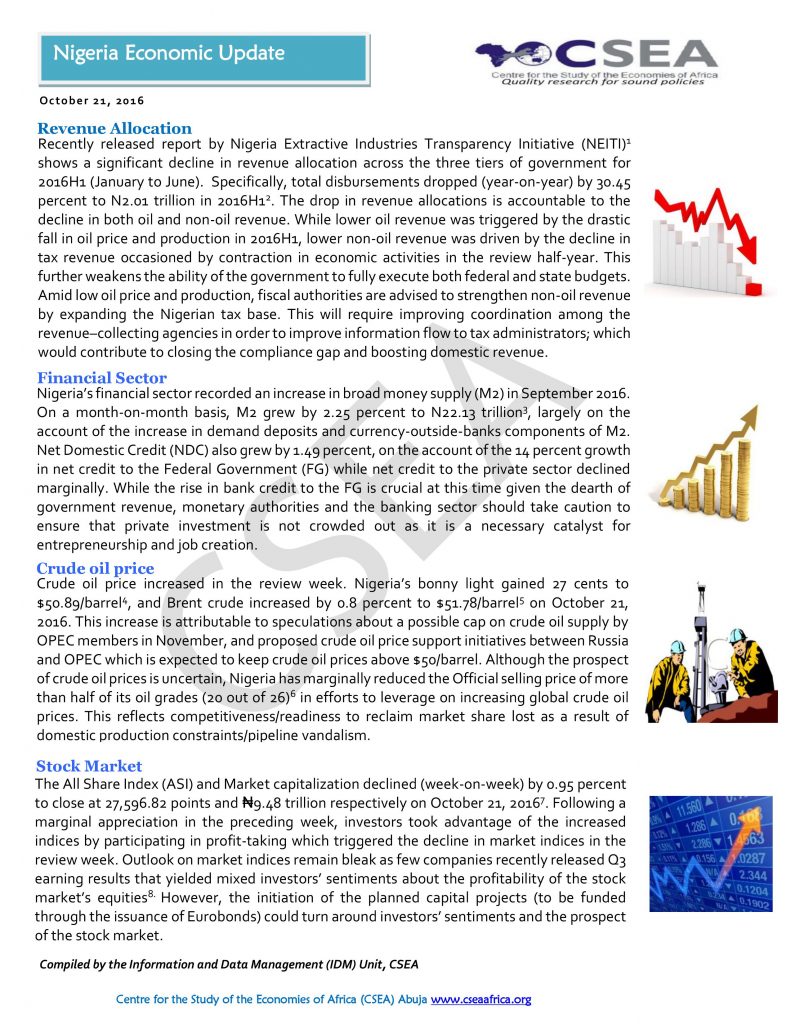Macroeconomic Report & Economic Updates

October 31, 2016
Nigeria Economic Update (Issue 45)
Recently
released report by Nigeria Extractive Industries Transparency
Initiative (NEITI)shows a significant decline in revenue
allocation across the three tiers of government for 2016H1 (January to June). Specifically, total disbursements dropped
(year-on-year) by 30.45 percent to N2.01 trillion in 2016H1. The
drop in revenue allocations is accountable to the decline in both oil and
non-oil revenue. While lower oil revenue was triggered by the drastic fall in
oil price and production in 2016H1, lower non-oil revenue was driven by the decline
in tax revenue occasioned by contraction in economic activities in the review
half-year.
Related
Nigeria Economic Update (Issue 51)
Recently released data by the National
Bureau of Statistics (NBS) shows that there was significant increase in Nigerias
total merchandise trade for 2016Q3. Basically, the total merchandise trade
increased (quarter-on-quarter) by 16.29 percent to N4, 722 billion in 2016Q3;owing to 29.1 percent increase in exports and 6.2 percent rise in imports. Oil
exports increased by 31 percent to N1, 943 billion, while non-oil exports
increased by 20.5 percent to N440 billion. However, on the aggregate, Nigeria
recorded yet another trade deficit of N104 billion, indicating continuous
higher imports relative to exports. Overall, though there is improvement in the
performance of non-oil sector, however, this is insufficient to effectively
complement the loss in oil trade sustained since the beginning of oil price
crash. This suggests that diversification into non-oil sector may not be able
to rescue the economy in the short term. However, while the diversification
efforts should be sustained, eliminating hurdles in oil production may be
instrumental to higher exports, especially as oil price increase is gaining
momentum.
A Cost-Effectiveness Analysis Of School Feeding And Education Assistance Programs In Nigeria
The study conducts a cost-effectiveness analysis on two education interventions
in Nigeria: Education Assistance program and the Home Grown School
Feeding and Health Program with the aim of increasing school enrollment.
